Berberine is a powerful plant-based alkaloid compound that is gaining a lot of attention lately due to its beneficial effects on weight, blood sugar, insulin, longevity, and gut health.
And for good reason; it works.
It’s even been referred to as nature’s Ozempic, an homage to the fact that it has a powerful impact on blood sugar and weight.
Even though I don’t think it’s fair to compare berberine to Ozempic, this should serve to give you an idea of how powerful it can be for an over-the-counter supplement.
We will talk more about who should use berberine and its benefits later, for now, let’s talk about what you’re here for:
The Showdown: Berberine vs Dihydroberberine
While there have been several formulations of berberine available for a time, most suffer from the same big problem:
Poor absorption and poor bioavailability.
In other words, even though you are taking a relatively high dose, only a small fraction of the total dose makes it (<1% based on animal studies (1)) into your body where it can be used by your cells.
This problem can be overcome simply by multi-dosing with berberine and by taking higher and higher doses which is why most supplements recommend splitting berberine into two doses taken in the morning and night.
But this comes with another problem:
Side effects related to increasing doses.
The more of something you take, the more likely it is to cause problems.
So people who have a lot of weight to lose, or very high blood sugar, often run into side effects and diminishing returns as they continually increase their dose hoping to get better and better results.
This is why the creation of dihydroberberine is interesting.
As a newcomer in town, dihydroberberine attempts to solve the issue of dose-related side effects as well as poor bioavailability.
But does it work?
Here’s what we know based on one pilot study…
Researchers evaluated 5 healthy men (yes, only 5) after providing them with either 500 mg of berberine, 100 mg of dihydroberberine, 200 mg of dihydroberberine, or a placebo.
They found that those taking dihydroberberine saw similar changes in both glucose and insulin levels as the higher doses of berberine (2).
The implication is that dihydroberberine is significantly more powerful than berberine given that lower dosing provided the same benefit which is why you’ll often see dihydroberberine touted as being 5x more effective than berberine.
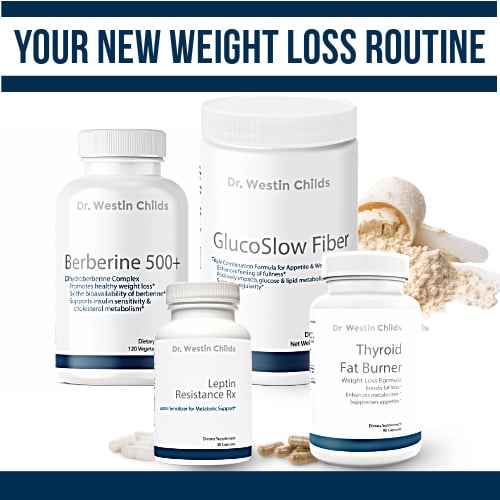
This isn’t a study that really attempted to assess whether or not berberine works, because we have a lot of data to suggest that it does, it was really an attempt to determine which form was best.
And if we are looking purely at the numbers, it does appear that dihydroberberine is the clear winner, at least in this study.
But is it convincing enough for you to run out and replace your berberine with dihydroberberine?
Potentially, but here are a few things to consider first:
Some Limitations Of The Study
#1. Small sample size
This pilot study was only done on 5 people.
With such a low number, it’s difficult to extract this data and broadly apply it to a large population of people.
More people provide more data and more data means we have more confidence in the results.
#2. Other metrics weren’t evaluated
This study assessed the impact that both berberine and dihydroberberine had on insulin and blood sugar but did not assess other important metrics like weight, cholesterol, and gut health.
So while we can tentatively say that dihydroberberine is more powerful than berberine at managing blood sugar and insulin, we can’t say the same about its impact on weight and cholesterol.
#3. The length of time
This study only evaluated the impact of dihydroberberine and berberine over the course of 4 meals spread throughout a little over 1 day (breakfast, lunch, dinner, and breakfast the following day).
I’ve been recommending berberine for a long time and have extensive experience in using it and I can tell you that many of its benefits take weeks to materialize.
It’s very likely that the benefits seen in blood sugar after the ingestion of meals do have a positive effect on long-term blood sugar control, but it’s not something we can definitely say with the data provided.
Having said all of this, I still think it’s worth using dihydroberberine over berberine.
Here’s why:
In the world of natural remedies, decent quality studies do not come out very often, especially not for obscure or new ingredients.
So while the data we have isn’t super strong, it still points in the right direction.
When you combine this with the fact that we have real-world evidence from people who have used both dihydroberberine as well as berberine, I think there’s sufficient data to suggest that it works and that it works well.
It was all of this that convinced me to reformulate my berberine hcl supplement to contain dihydroberberine and so far, my own personal data suggests that dihydroberberine is more powerful.
How much dihydroberberine should you take?
If you want to transition from taking berberine hcl to dihydroberberine, here’s what you need to know:
Given its roughly 5 times greater bioavailability over berberine hcl, the dosing needed to obtain a therapeutic benefit is lower than you might think.
Standard dosing for berberine hcl is usually 500 mg taken twice per day for a total of 1,000 mg per day but this dosing sometimes goes as high as 2,000 mg per day (1,000 mg taken twice daily) depending on the condition being treated and its severity.
Dihydroberberine is typically dosed at 200 mg which is roughly equivalent to a 1,000 mg dose of berberine hcl.
If you were to take dihydroberberine, you’d want to take a total dose of 400 to 500 mg split into two 200 mg or 250 mg doses.
Dihydroberberine FAQ:
How does dihydroberberine work?
Dihydroberberine is a downstream metabolite of berberine so it has the same cellular effects as berberine hcl.
As a plant alkaloid, it impacts several signaling pathways including AMP-activated protein kinase and nuclear factor KB (3) (there are many others but these are the most prominent).
And is the activation of these pathways that provides berberine its benefits on:
- Inflammation & the immune system (4)
- Oxidation
- Weight management (5)
- Insulin (6)
- Blood sugar
- Cholesterol (7)
- Cancer
- And the cardiovascular system
Its chemical shape (c ring with quaternary ammonium structure) is what provides its anti-bacterial and pro-gut health benefits.
Does dihydroberberine cause symptoms?
In general, both forms of berberine are very well tolerated but there are some people who may experience gut problems when taking high doses.
One study suggested that this rate may be as high as 34% of people taking berberine (8), but that conflicts with my own experience which is much much lower.
If berberine is going to cause problems it tends to cause them at higher doses (more than 1,000 mg per day) and they primarily occur in the gastrointestinal tract.
Some people have reported the following when taking berberine:
- Diarrhea
- Constipation
- Gas
- Upset stomach
- Nausea
These GI-related symptoms can usually be controlled by either reducing the dose or by switching to dihydroberberine as lower doses are needed to obtain therapeutic benefits.
Will dihydroberberine cause hypoglycemia (low blood sugar)?
The short answer is no, at least not for the majority of people.
For instance, one study evaluated the incidence of hypoglycemia in 3,048 patients with type II diabetes and found that “treatment with berberine may be safe since it does not increase the incidence of total adverse events and the risk of hypoglycemia”.
But if you look around the internet long enough, you may find some anecdotal reports and doctors that say it might.
I’ve recommended berberine to thousands of people and I’ve yet to see a case of hypoglycemia but that doesn’t mean it can’t happen in some rare circumstances.
Which is better for weight loss?
Dihydroberberine (most likely).
While we don’t have hard data or evidence to prove that this is the case, it seems very likely given the fact that it has a more profound impact on blood sugar and insulin compared to berberine hcl.
All things being equal, dihydroberberine would be the preferred form for weight loss but remember it must be combined with a healthy diet and regular exercise for best results.
Can dihydroberberine be used in patients with hypothyroidism and Hashimoto’s?
Absolutely.
Both forms of berberine are ideal for this population as thyroid disorders frequently result in high cholesterol, weight gain, and insulin resistance.
There’s no indication that berberine is harmful to those with thyroid problems and at least one study has shown it can be beneficial in those with Graves’ disease (9).
Which is better for diabetes and blood sugar?
Dihydroberberine.
If you are using it to treat insulin resistance, type II diabetes, or for better blood sugar control then dihydroberberine is the clear winner.
Looking for a dihydroberberine supplement? Check out berberine 500+.
And if you want to better understand how berberine can help you lose weight then check out this article next.
Scientific References
#1. pubmed.ncbi.nlm.nih.gov/21637946/
#2. pubmed.ncbi.nlm.nih.gov/35010998/
#3. ncbi.nlm.nih.gov/pmc/articles/PMC8964367/
#4. ncbi.nlm.nih.gov/pmc/articles/PMC7754052/
#5. pubmed.ncbi.nlm.nih.gov/32353823/
#6. ncbi.nlm.nih.gov/pmc/articles/PMC8874997/
#7. ncbi.nlm.nih.gov/pmc/articles/PMC5871262/
#8. pubmed.ncbi.nlm.nih.gov/18442638/
#9. ncbi.nlm.nih.gov/pmc/articles/PMC8785824/
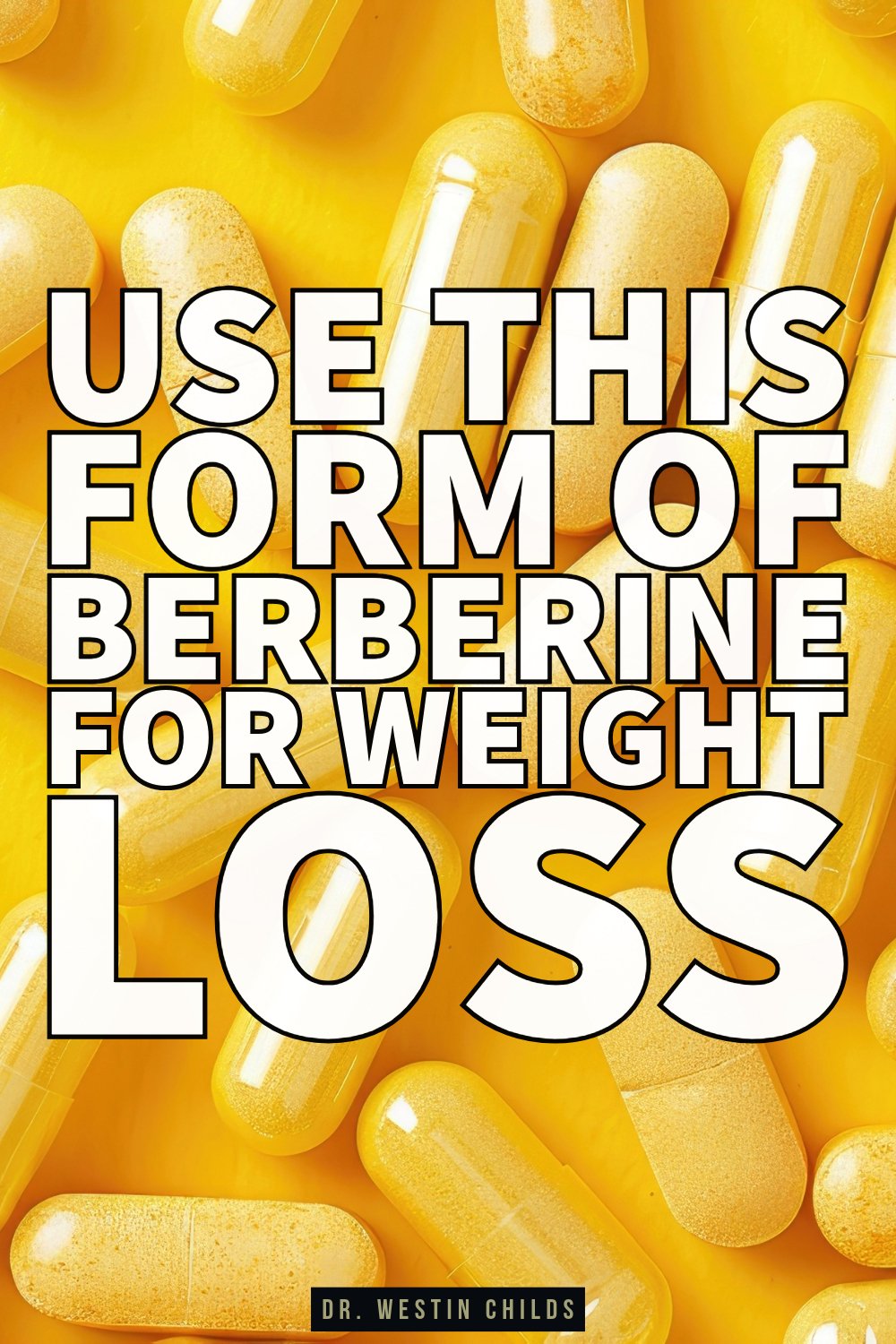
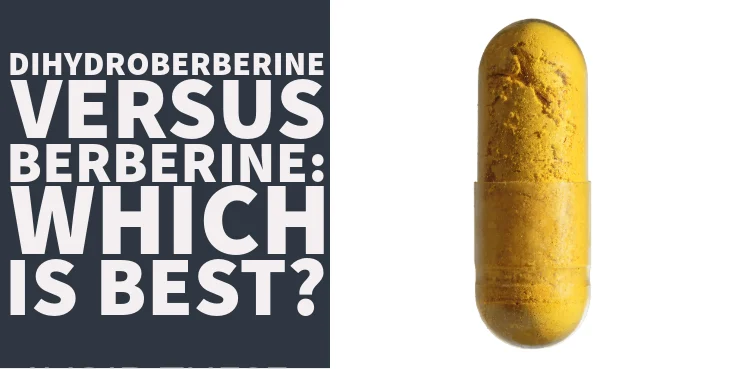


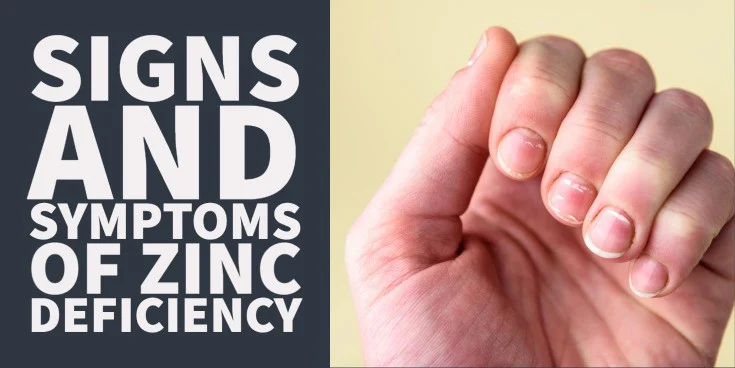
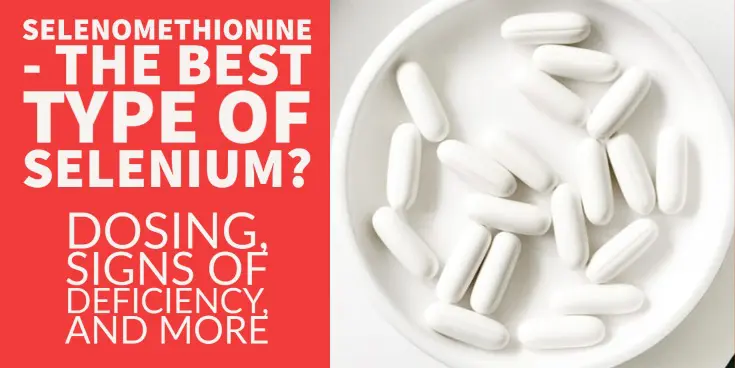




My functional doctor recommended berberine, 500mg, as an anti-microbial as well as “inhibiting the liver fro making cholesterol.” My cholesterol is quite high 282, yet I am 5’2, 110 lbs. (The ratio is good, however.)
On my first dose of berberine (500mg), I fainted.
Nowhere do I see fainting as a possible risk due to berberine’s reduction in blood sugar.
Can you explain?
Hi Eileen,
Studies have shown that berberine doesn’t cause hypoglycemia (I referenced this study in the article), so it’s unlikely to be the cause. It’s been my experience that people over attribute symptoms to natural therapies like supplements when the true source of these symptoms is usually something more obvious like a lack of sleep, dehydration, eating too little, menstrual cycle related blood loss, etc. These sorts of things will have a much greater impact on your physiology than 500 mg of any individual ingredient.
It could always be the case that you are experiencing a 1 in 100,000 side effect from berberine but I’d look into those other factors first.
Hi Eileen, berberine isn’t just an insulin sensitivity or blood sugar control it also lowers high blood pressure, triglycerides fatty liver just to name a few…… the fact that you nearly fainted could also mean at that time your blood pressure was already low and or dehydrated! Try improving your hydration and blood pressure by adding a pinch of celtic salt or pink salt(not from china) on your tongue to dissolve then drink a small glass of water! This will improve both! Hope this helps! A religious user of berberine but has also low blood pressure with same effect. So I only use once a day with my biggest meal
I experienced a rash on my arms after taking berberine. Will Dilhydroberberine do the same thing to me or is it different from berberine? Thanks
Hi Lisa,
It’s hard to know for sure but it’s certainly possible and even likely given that dihydroberberine is a downstream product of berberine.
I tried both. Nothing works. I have been on LDN for three months. Nothing. I am working with a functional doctor to fix leptin resistance and low thyroid and low adrenal function. Slowly getting better with the functional doctor as I spend a fortune. I am hemorrhaging cash. I am starting to think all of this is a scam. The LDN is doing nothing and I am getting fatter and fatter all the time. I followed Sarah Kleiner to try to fix the leptin resistance. I am starting to see all of this as a scam. I am soon going to go on a 30 day water fast. My metabolism cannot drop any lower with the leptin resistance so what harm can it do. I cannot stand this anymore and fasting will have to eventually win out over the leptin resistance.
Hi Deanna,
As a medical condition, leptin resistance certainly exists and can impact one’s ability to lose weight. The problem with leptin resistance is that there really isn’t a consensus regarding its treatment so most therapies would be considered experimental and, therefore, may not always work. On top of this issue, it’s always possible that you are spending money on someone who is a better marketer than a physician or healthcare provider which is common in the world of functional medicine. For this reason, I think it’s best to stick to treatments that are relatively cost effective while avoiding high-dollar group coaching or individual coaching programs.
That’s just my opinion, though, and anyone can spend whatever amount of money they deem appropriate on their health.
I took Barbertin for 4 days and had the worst excruciating stomach pain ever. I’m now back to may normal self after taking Prilosec. I want to take Dihydroberberine to help with my cholesterol and glucose number but I’m scared I will get the same result. Any suggestions on how I should take it?
Hi Theasa,
There’s no way to know for sure how you will react, but, one of the main selling points of dihydroberberine is its reduced impact on the GI tract thereby reducing those type of symptoms. In regards to dosing, you can see how I recommend taking it here: https://www.restartmed.com/product/berberine-500/
Is it necessary to take Berberine if you are taking Dihydroberberine or is it better to take them together? Or is it contraindicated to take together?
Hi Tricia,
Generally speaking, one replaces the other. Dihydroberberine, for instance, is just a downstream metabolite of berberine and does everything that berberine does, just in a more powerful way. So there would really be no need to continue to take berberine hcl if you are taking dihydroberberine. I don’t see the harm in taking both if you really wanted to, you’d just be slightly increasing your risk of GI-related side effects if you do.
I have a Lotta allergies have you seen any reactions from people that have a lot of allergies or people that have a histamine allergy?
Hi Mary Ann,
No, that’s not something I’ve seen with berberine or dihydroberberine.
Hello!
I have a brand of 170 mg per serving (2capsules) of dihydroberberine pills. The label recommends to take only 2 capsules a day with meals. Now that I am reading your blog, I noticed that I am only having 170 instead of the 400 mgs you recommend a day. Shall I take two capsules with both meals instead? Hope you can help. Thanks.
Hi Veronica,
You can take whatever dose you feel works best for you. I happen to prefer higher doses because I think they work better for things like weight loss, blood sugar management, and so on.
Do you have a sublingual form of vitamin B12 or a vitamin B sublingual form?
Hi Marcia,
I do not. You don’t really need sublingual if your doses of B12 are in the right forms and doses. And if you try to put those doses in sublingual form, it just doesn’t work (I tried). So you either take smaller doses of sublingual B12, most of which still gets absorbed in the intestines, or you take super high doses in capsule form and more gets into the body. That’s why I ended up with this formulation: https://www.restartmed.com/product/thyroid-b-complex/
I have tried berberine several times. Every time I take it, I get horrible gastrointestinal symptoms. (Even if I just take 50-100mg daily or every 2 days) I bloat and look like I am about 8 mos pregnant. I get cramps and very very bad gas. My stomach just hurts when I take it. I am wondering if I am having an allergic reaction to it. My functional medicine doc thinks I have high cortisol and adrenaline dysfunction along with my hashimotos. This is the reason why she suggested it.
Do you have any suggestions ?
Hi Tracy,
There are many other things you can try including dihydroberberine, glucomannan, alhpa lipoic acid, rhodiola, maca, ashwagandha, phsophatidylserine, etc. There’s really no reason to go back to something that isn’t working when there are so many other options available.
I have been using HPA adapt for over a year and I don’t feel like it’s helping with the cortisol issue at all. I am also supplementing with vitamin C, zinc and magnesium. I am unable to handle the least little bit of stress. I break out in a cold sweat immediately. I have done some reading on phsophatidylsterine. I have read good and bad things about it. What would be a good starting dose if I decide to try it?
It probably does not help that my job is very stressful. I am only a few years from retirement, thank goodness.
Hi Tracy,
Dosing for PS is typically around 600 mg/day.